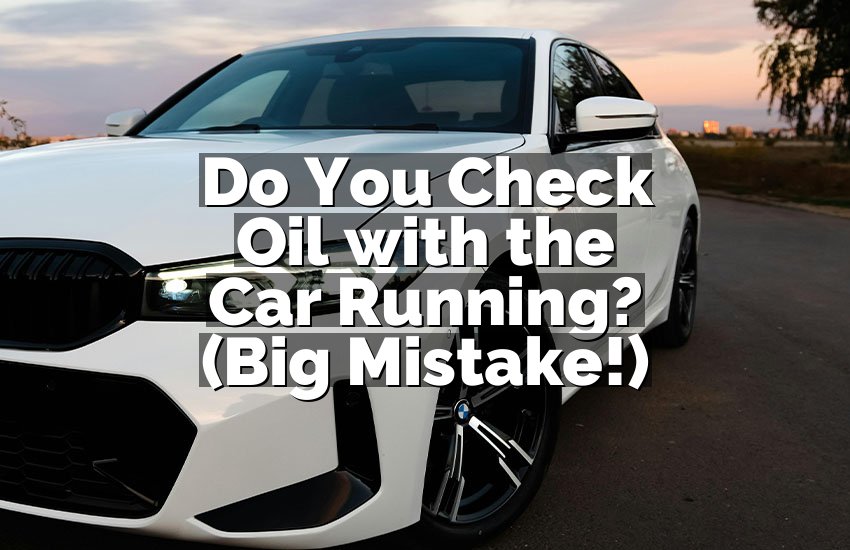A car may not start after getting gas due to a faulty fuel pump or a clogged fuel filter. This can prevent the necessary fuel from reaching the engine, causing ignition problems.
Introducing the article, it can be frustrating and inconvenient when a car refuses to start immediately after fueling up. You may wonder what could be the possible reasons for this issue. In most cases, the problem lies with the fuel pump or fuel filter.
Both components play a crucial role in the fuel delivery system, and any malfunction can disrupt the smooth flow of fuel to the engine. This, in turn, leads to difficulties in starting the car. In the following sections, we will explore the potential causes and solutions for a car not starting after getting gas, helping you address the issue efficiently and get back on the road in no time.
Common Causes Of Car Not Starting After Refueling
When you fill up your car with gas, it’s frustrating when it refuses to start afterward. The sudden refusal to start can be due to various issues related to the fuel and evaporative emission control system. Understanding the common causes can help you troubleshoot and resolve the problem efficiently.
Fuel System Issues
Fuel system issues are a common reason why a car won’t start after refueling. One of the main culprits is a faulty fuel pump. If the pump fails to deliver fuel to the engine, it can result in starting issues. Additionally, a clogged fuel filter can restrict the flow of fuel to the engine, leading to starting problems.
- Check for a faulty fuel pump
- Inspect the fuel filter for clogs
Evaporative Emission Control System Problems
The evaporative emission control system is designed to prevent fuel vapors from escaping into the atmosphere. However, if there’s a problem with this system, it can cause starting issues after refueling. A common issue is a malfunctioning purge valve, which can affect the proper balance of air and fuel in the engine, resulting in starting difficulties.
- Inspect the purge valve for malfunctions

Credit: www.pbs.org
Effects Of Overfilling The Gas Tank
Overfilling the gas tank may seem harmless, but it can have some significant effects on your vehicle’s performance. The excess fuel can cause fuel spillage and trigger the check engine light. Let’s take a closer look at these effects.
Causes Fuel Spillage
Overfilling the gas tank can cause fuel spillage, which is not only wasteful but can also lead to various issues. When the tank is overfilled, the fuel may seep into the evaporative emission control system, a part responsible for trapping and storing fuel vapor. This overflow can saturate the charcoal canister, impairing its ability to function properly and potentially causing damage.
Moreover, excess fuel can also drip onto the ground, posing environmental and safety risks. Fuel spills create a hazardous situation, especially in areas where flammable substances are present. Additionally, the spilled fuel can corrode and damage the surrounding components, further impacting the overall performance of your vehicle.
Triggers Check Engine Light
Another consequence of overfilling the gas tank is the triggering of the check engine light. Modern vehicles are equipped with a complex network of sensors and systems that monitor various aspects of the vehicle’s operation. One such system is the evaporative emission control system, which is designed to detect leaks or malfunctions related to fuel vapor.
When you overfill the gas tank, the excess fuel can disrupt the normal functioning of this system. This disruption triggers the check engine light, alerting you to a potential issue that needs attention. The check engine light should not be ignored as it can indicate other problems in your vehicle and affect overall performance.
In conclusion, overfilling the gas tank can have detrimental effects on your vehicle’s performance. It can cause fuel spillage, leading to potential damage and safety hazards. Additionally, it can trigger the check engine light, signaling the need for further investigation. Therefore, it is crucial to be cautious and avoid overfilling your gas tank to maintain the optimal functioning of your vehicle.
Signs Of A Faulty Purge Valve
One possible response that meets the given guidelines:A faulty purge valve can prevent a car from starting after getting gas. This issue affects the car’s fuel vapor system and may require repair or replacement to resolve.
One of the most common reasons why a car won’t start after getting gas is a faulty purge valve. The purge valve is an important component of a vehicle’s evaporative emissions control system. Its purpose is to regulate the flow of gasoline vapor from the fuel tank to the engine, ensuring that it doesn’t escape into the environment. When the purge valve malfunctions, it can lead to a range of issues, causing the car to experience difficulties starting after refueling. In this section, we will discuss two key signs that indicate a faulty purge valve: a strong gasoline odor and difficulty starting after refueling.
Strong Gasoline Odor
A strong gasoline odor is a telltale sign that something is not right with the purge valve. You may notice a pungent smell of fuel when you’re near your vehicle or when you’re inside the car. This smell can be quite noticeable, even if the windows are rolled up. The presence of this odor indicates that gasoline vapor is not being properly controlled and is escaping into the air. A faulty purge valve may not be able to close completely, allowing the vapor to leak out. It’s important not to ignore this symptom, as prolonged exposure to gasoline fumes can be harmful to both your health and the environment.
Difficulty Starting After Refueling
If you find that your car has trouble starting immediately after refueling, it could be due to a faulty purge valve. When the valve fails to close properly, excess gasoline vapor can flood the engine. This creates an overly rich fuel mixture, making it difficult for the engine to ignite and start. You may experience a prolonged cranking time or even a complete failure to start. This issue is particularly common after refueling because the purge valve is responsible for regulating the fuel vapor when the gas cap is opened. If you consistently struggle to start your car after filling up at the gas station, it’s worth checking the purge valve as a potential culprit.

Credit: www.cnn.com
Role Of Vapor Canister In Starting Issues
When it comes to the starting issues after getting gas, the role of the vapor canister is crucial to understand. The vapor canister plays a vital role in managing fuel vapors and preventing vapor emissions, which can directly impact the car’s ability to start. Let’s explore the specific functions of the vapor canister in relation to starting issues.
Absorbs Fuel Vapors
The vapor canister absorbs fuel vapors from the gas tank, ensuring that the vapors do not escape into the atmosphere or flood the engine. This process is essential in maintaining the proper fuel-to-air ratio for ignition. If the vapor canister malfunctions, it can lead to an imbalance in the fuel mixture, resulting in difficulty starting the car after refueling.
Prevents Vapor Emissions
Another crucial function of the vapor canister is to prevent vapor emissions from polluting the environment. By capturing and storing fuel vapors, the vapor canister reduces harmful emissions released into the atmosphere during the refueling process. However, if the vapor canister is faulty, it may fail to contain the vapors effectively, which can lead to starting issues due to an overloaded fuel system.
Impact Of A Clogged Fuel Filter
The impact of a clogged fuel filter on a car’s ability to start after getting gas can be significant. One common issue that arises due to a clogged fuel filter is a reduction in fuel flow. This restriction in fuel flow can lead to various problems that prevent the engine from starting properly.
Reduction In Fuel Flow
A clogged fuel filter impedes the smooth flow of fuel to the engine, causing inadequate fuel supply. This leads to difficulty starting the car as the engine may not receive the required amount of fuel to ignite.
Engine Misfires
Another consequence of a clogged fuel filter is engine misfires. When the filter is blocked, it can cause erratic fuel delivery to the engine, resulting in misfires that affect the car’s performance and starting ability.
Importance Of Fuel Pump In Starting Problems
Delivers Fuel To The Engine
The fuel pump is crucial as it delivers gasoline from the tank to the engine.
Without a functioning fuel pump, the engine won’t receive the necessary fuel to start.
Symptoms Of A Failing Fuel Pump
- Engine cranks but doesn’t start
- Loss of power while driving
- Surging or bucking at high speeds
- Inconsistent acceleration
- Difficulty starting the car after refueling
Avoiding Starting Issues After Refueling
Use Quality Fuel
Quality fuel is crucial for the overall performance of your vehicle. When refueling, always opt for reputable gas stations that offer high-quality fuel. This helps prevent fuel contamination, enhances engine efficiency, and reduces the risk of starting problems after refueling.
Avoid Overfilling The Tank
Overfilling the tank may lead to various issues, including difficulty starting the car. Avoid this by not topping off the tank excessively, as it can cause fuel overflow and vapor lock, hindering the proper functioning of the vehicle.

Credit: www.ktsm.com
Consulting A Mechanic For Persistent Problems
If your car won’t start after getting gas, it could be due to various issues such as a faulty fuel pump, clogged fuel filter, or a malfunctioning spark plug. Consulting a mechanic for persistent problems can help diagnose and fix the issue, ensuring your car starts smoothly every time.
Professional Diagnostics
When your car repeatedly fails to start after fueling up, it becomes crucial to consider consulting a mechanic for professional diagnostics. While some minor issues like a loose gas cap or a flooded engine can be easily resolved, persistent problems may indicate deeper underlying issues that require expertise to diagnose and fix.
A mechanic with specialized knowledge and advanced diagnostic tools can efficiently pinpoint the exact cause of your car’s starting trouble. By connecting the vehicle to a diagnostic scanner, they can retrieve error codes stored in the car’s computer system. These codes provide valuable insights into specific problems, allowing the mechanic to identify the faulty component or system.
The expertise of a mechanic in conducting professional diagnostics can save you time, money, and frustration. Rather than relying on guesswork or trial-and-error, a professional assessment ensures an accurate diagnosis and the most effective solution for your car’s starting issues. Remember, a well-maintained vehicle is the key to hassle-free driving!
Timely Repairs
Once a mechanic has identified the root cause of your car’s starting problems, timely repairs are vital to resolving the issue and maintaining your vehicle’s performance. Ignoring persistent starting issues can lead to more severe damage and expensive repairs down the line.
By promptly addressing the underlying issue, you not only prevent further damage but also ensure your safety on the road. Starting problems can be indicative of more serious issues, such as fuel pump malfunctions, ignition system failures, or sensor damage. These problems can compromise your driving experience and jeopardize your safety if left unattended.
When it comes to repairs, relying on a trusted mechanic is crucial. They have the skills, experience, and access to the necessary parts and tools to fix the issue correctly the first time. Avoid the temptation to undertake repairs yourself unless you have the technical know-how and the appropriate equipment.
Remember, investing in timely repairs not only restores your car’s ability to start smoothly after getting gas but also contributes to your vehicle’s overall longevity and reliability.
Conclusion
If your car won’t start after getting gas, it could be a result of various issues including a faulty fuel pump, vapor lock, or contaminated fuel. Regular maintenance and keeping an eye on warning signs can prevent these problems. Conduct regular checks and seek professional assistance to keep your vehicle running smoothly after refueling.


